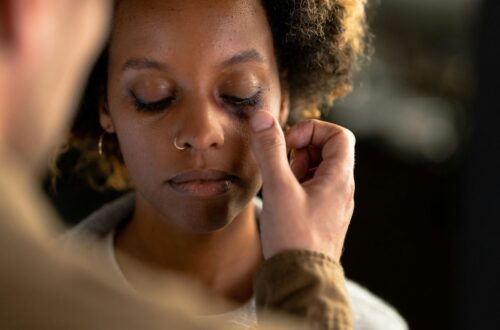As our society continues to age, the demand for quality elder care has become more pressing than ever. Nursing homes play a vital role in providing the necessary support and medical attention for elderly individuals who require round-the-clock care. However, amidst the many compassionate and dedicated facilities, some nursing homes, unfortunately, fail to meet their responsibilities, leading to instances of elder abuse and neglect. When faced with such a distressing situation, families often wonder if they can hold the nursing home liable for the harm caused to their loved ones. This comprehensive blog post will delve deeper into the legal aspects surrounding elder abuse, exploring the types of abuse, signs to look out for, and how you can seek accountability.
Contents
Understanding Elder Abuse
Elder abuse encompasses a range of abhorrent behaviors inflicted upon older adults, diminishing their quality of life and compromising their well-being. These forms of mistreatment can include physical abuse, emotional or psychological abuse, neglect, financial exploitation, and even sexual abuse. Tragically, nursing home residents, who are often vulnerable and dependent, are at a higher risk of falling victim to such maltreatment, making it all the more crucial for their families to be vigilant about their safety and care.
Signs of Elder Abuse
Recognizing the signs of elder abuse is paramount for early intervention and prevention. Observing these red flags can potentially save your loved one from further harm. Common indicators may include unexplained injuries like bruises, cuts, or fractures, sudden and pronounced changes in behavior, withdrawal from social interactions, unexplained financial transactions or missing possessions, poor personal hygiene, malnutrition, and dehydration. If you notice any of these signs or have a gut feeling that something is amiss, it is essential to investigate further and take appropriate action.
Understanding Nursing Home Liability
Nursing homes have a duty of care toward their residents, which is legally mandated. This duty entails providing a safe and nurturing environment, attending to the resident’s physical and emotional needs, and ensuring their overall well-being. When a nursing home fails to fulfill this duty, and neglect or abuse of a resident occurs, they can be held liable for the harm caused.
Types of Liability
- Negligence: Nursing homes can be held liable for negligence if they fail to exercise reasonable care in managing the facility or in hiring, training, and supervising their staff. Examples of negligence may include inadequate supervision resulting in accidents or insufficient medical attention leading to health complications.
- Medical Malpractice: If a nursing home’s medical staff fails to provide the appropriate standard of medical care, resulting in harm to a resident, it may be considered medical malpractice. This could include misdiagnoses, medication errors, or neglecting necessary medical treatments.
- Vicarious Liability: Nursing homes may be held vicariously liable for the actions of their employees if the abuse or neglect occurred within the scope of employment. This means that even if a specific staff member committed the abuse, the nursing home can still be held responsible.
- Corporate Liability: In some cases, nursing home corporations may be held liable for the actions of their facilities if they demonstrate a pattern of negligence or insufficient oversight. This allows for accountability at a higher level, ensuring that corporate entities take a proactive role in maintaining the standard of care.
Taking Legal Action
If you suspect elder abuse or neglect in a nursing home, taking immediate action is crucial to protect your loved one and others from harm. Begin by documenting any evidence you can gather, such as photographs of injuries or conversations with the resident detailing mistreatment. Next, report the abuse to the nursing home administration and relevant regulatory authorities. Remember, reporting abuse not only helps your loved one but may also prevent further harm to other residents.
Consulting an experienced elder abuse attorney is essential in understanding your legal options and building a strong case against the nursing home. An attorney will guide you through the legal process, ensuring your rights are protected and the responsible parties are held accountable. They will have the expertise to navigate complex laws and regulations surrounding elder abuse cases, increasing the chances of a successful outcome.
Make sure to always hire local attorneys who are familiar with the state laws and have experience in handling similar cases. If you live in Palm Beach, hopefully, you can find some of the best lawyers in the area who specialize in this field. An experienced West Palm Beach nursing home abuse lawyer can help you understand your situation and provide sound legal advice to ensure justice is served. It is also important to consider the attorney’s reputation, fee structure, communication style, and success rate before deciding.
Proving Nursing Home Liability
Proving nursing home liability can be a complex process but with the proper evidence and legal support, it is possible to seek justice for your loved one. Several elements need to be established to build a strong case:
- Duty of Care: The first step is to demonstrate that the nursing home had a duty of care towards the resident, meaning they were responsible for providing proper care and safety.
- Breach of Duty: It must be shown that the nursing home breached its duty of care through negligent actions or inactions. This could involve a lack of supervision or failure to address a known risk.
- Causation: There should be a direct link between the breach of duty and the harm suffered by the resident. It must be evident that the negligence or abuse directly caused the injuries or suffering.
- Damages: Lastly, you need to establish that the resident suffered damages, such as physical injuries, emotional distress, or financial losses, due to the nursing home’s actions. Medical records, photographs, and witness testimonies can be critical in proving these damages.
Preventing Elder Abuse
While seeking justice for your loved one is paramount, advocating for proactive measures to prevent elder mistreatment is equally crucial. Here are some steps to consider:
- Research: Before choosing a nursing home, thoroughly research its reputation, reviews, and compliance with state regulations. Look for facilities with high standards of care and a positive track record.
- Regular Visits: Frequent visits to your loved one can help you monitor their well-being and detect any signs of abuse or neglect early on. The presence of involved family members can also act as a deterrent to potential abusers.
- Staff Training: Inquire about the nursing home’s staff training programs to ensure they are well-equipped to handle the residents’ needs, especially those with specific medical conditions or cognitive impairments.
- Open Communication: Encourage open communication with your loved one and the nursing home staff to maintain transparency and address any concerns promptly. Creating a supportive and communicative environment can foster a sense of trust and safety for residents.
Elder abuse in nursing homes is a distressing reality that demands our attention and action. By recognizing the signs of abuse, understanding nursing home liability, and taking prompt action, we can protect our loved ones and contribute to preventing elder abuse in the future. Seeking the guidance of an experienced attorney can be instrumental in securing justice and ensuring the safety and dignity of our elders. Together, let us strive for a society where every elderly individual is treated with the respect and care they deserve, and where nursing homes fulfill their duty to provide compassionate and attentive care to those who once cared for us.






